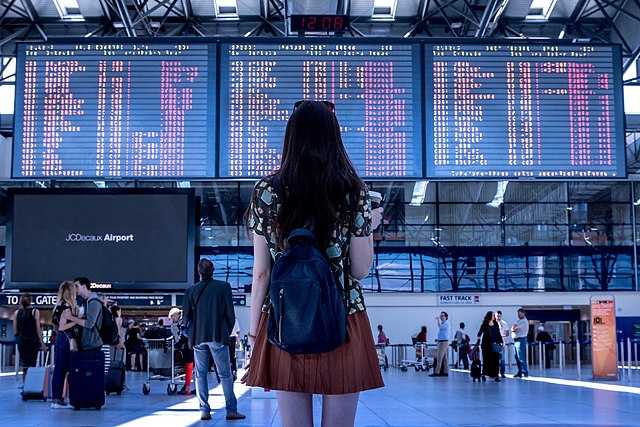
With a crucial deadline approaching, there is a possibility of flight disruptions during one of the busiest travel weekends of the year in New York.
Starting from July 1, wireless carriers like AT&T and Verizon are scheduled to increase the power levels of their 5G cellular networks near U.S. airports, marking the conclusion of a phased implementation period.
While this change may enhance 5G performance in and around airports, it could also result in radio interference for aircraft that have not yet been retrofitted with compatible equipment to handle these signals.
In particular, the deployment of 5G signals has the potential to impact radar altimeters, which rely on bouncing radio waves off the ground to provide pilots with accurate altitude measurements. Radar altimeters play a crucial role during landings, especially in adverse weather conditions and situations with limited visibility, where alternative methods of determining an aircraft’s height may be compromised.
Transportation Secretary Pete Buttigieg stated last week that over 80% of the U.S. domestic aircraft fleet has already undergone the necessary retrofitting. However, there remains a significant number of aircraft that still require upgrading. In a letter to Airlines for America, an industry trade group, Secretary Buttigieg noted that most of the outstanding aircraft are operated by foreign airlines. Nonetheless, he cautioned that the failure to complete the transition could result in travel disruptions, including delays and cancellations.
In the letter obtained by CNN, Buttigieg emphasized, “Passengers should not bear the burden of any airline’s failure to adequately equip their aircraft for safe operations in the 5G C-band environment. Furthermore, passengers cannot be expected to shoulder the responsibility for an airline’s inability to make realistic adjustments to their schedules” due to a lack of readiness for 5G implementation.
Abdul Kader, the founder of Boston Airport Cab, taxicab company in Boston, reported that “we are already facing cancellations by passengers who have booked airport pickup and drop services owing to flight delays and cancellations. Especially our cab services to New York are majorly impacted by these flight delays. So we would like to see a quick solution to this problem.”
Delta Air Lines has announced that, due to a supplier-related problem, it will be unable to meet the July 1 deadline. Approximately 190 narrowbody aircraft in its fleet are still equipped with the old radar altimeters. However, the airline reassured that all of its widebody aircraft will have the upgraded equipment in place by the specified deadline.
Although this situation may limit flights affected by adverse weather conditions, a spokesperson from Delta expressed confidence in expecting “minimal operational impact.” The company emphasized its unwavering commitment to flight safety, affirming its adherence to all directives and regulations in a statement.
In contrast, the Regional Airline Association reported that the majority of its members’ aircraft were retrofitted prior to a deadline last autumn, and they have outlined plans to retrofit the remaining planes.
The recent decision made by wireless carriers to intensify their 5G network operations near airports on Saturday follows a voluntary one-year delay agreed upon by the wireless providers to grant airlines sufficient time for fleet retrofitting. This postponement followed an earlier agreement reached between the wireless carriers and the aviation industry, prompted by widespread concerns about the potential impacts of 5G signals on air travel.
The deadline arrives following a week of significant flight disruptions primarily attributed to weather conditions, which are now starting to improve, except for United Airlines.
Buttigieg previously informed CNN that Friday is anticipated to be the busiest day of the holiday travel weekend and could potentially be the busiest day for air travel since the onset of the pandemic.
Image Credits- Boston Airport Travel





